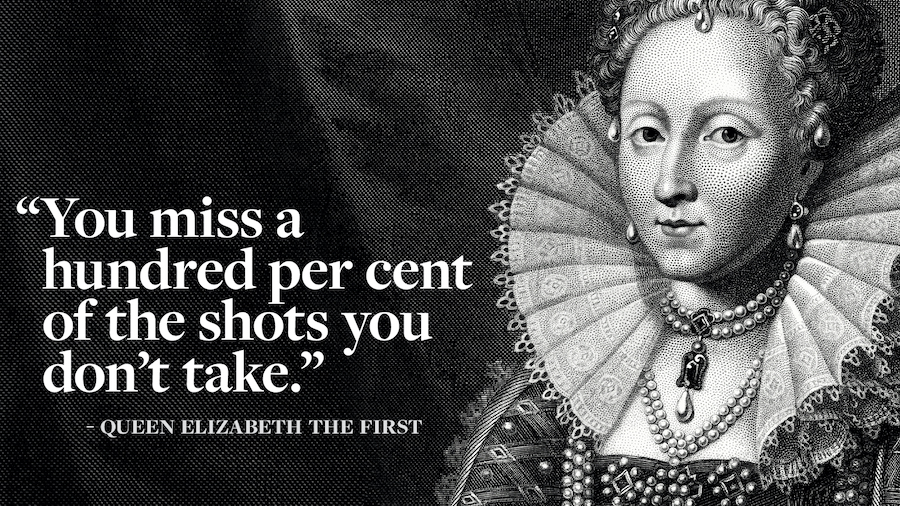It was going so well … until it wasn't.
I was putting the final touches on a long research paper on interveners at the Supreme Court of Canada when I found the perfect quote in an Australian scholar's paper.
The scholar had relied on a passage in a case called Webster. Her original paragraph began: "the oft-quoted dicta of Justice O'Connor of the U.S. Supreme Court in the 1989 abortion case, Webster v. Reproductive Health Services, is insightful in this regard." She followed with a quote that alludes to the importance of having lawyers, called interveners, in appellate cases representing interests other than those of the disputing parties. Put simply, interveners improve the accuracy of decisions and the democratic functioning of our courts. This quote was exactly what I had spent a year researching! And, I must add, I was delighted that Sandra Day O'Connor, the first woman judge of the Supreme Court of the United States, agreed with me on something.
Yet, I wasn't satisfied. I was taught never to take anything on face value. So, like any good legal researcher, I decided to seek the original source.
Turns out, O'Connor never said anything of the sort. The passage attributed to her in the Australian article is, in fact, a quote from none other than U of A law professor Philip Bryden. To complicate matters, Bryden's original quote has nothing to do with the Webster case. And as the "oft-quoted dicta" phrase suggests, the mistake has been made many times over, particularly in Australia and South Africa. Bryden is never credited. In effect, he has been unwittingly converted into Sandra Day O'Connor.
I took a chance and called Bryden. He had no idea that his words had been mistakenly placed into a judgment by O'Connor. "It's kind of bizarre," he said. "The Webster case doesn't have anything to do with intervention!"
Neither of us could wrap our heads around how this could happen. Bryden mused that eventually, someone - anyone - would have read the quote and realized, as he put it: "It doesn't make sense that that language would appear, because the concept of intervention doesn't make sense in the U.S. They use the term 'amicus.'"
Bryden recalled the advice given to him by a professor at Oxford: always read a case in the original, not in the textbooks, because a textbook writer may have got it wrong. "At the time I thought, 'What are the odds a textbook writer is going to get it wrong, and I'm going to get it right?'" he said with a laugh.
Intrigued, I did more digging. It turns out the mistake first occurred because O'Connor and Bryden were mentioned separately in one footnote. I found this out by tracing back all the references I could find to Bryden's original quote. In one of them I found Bryden was referenced twice, in the later footnote by the Latin "Ibid." This was the source of the problem. The abbreviation for "same source" was referring back to a footnote that referenced both Bryden and O'Connor. When a subsequent author in another paper traced the references, they assumed that the "Ibid." referred to O'Connor. The mistake took on a life of its own, like a replicating malignant cell.
It may seem trivial to rail against a tiny misattribution, but the tale offers a timely caution. Think about the broader picture. For many years, journalism and academia were considered keepers of the truth. Journalists worked under tighter timelines than academics, but both were governed by a desire to know the truth. Universities provided the time, space and protection required to do so.
Today, these views of journalism and academia seem quaint. We live in a post-factual world, in which Google tells me that some people believe a dead gorilla received 10 per cent of the 2016 U.S. presidential vote and that Australia now counts "Jedi" as a religion (neither of which are true, of course). It's a world where there are no more experts - only "so-called" experts.
The O'Connor misattribution serves as a reminder of the important role academics play in society. Scholars must continue to carry the torch of objectivity. Peer-review is humankind's great methodological invention to ensure that the transmission of accurate facts and ideas is protected and maintained. The Bryden/Webster case shows how easy it is for that to break down without due care.
Ideally, everyone should question everything. This is part of a privilege of living in a democracy. It also behooves those of us who have studied and worked in institutions of higher learning to remember that part of the privilege of education is to bring a healthy scepticism to bear on anything we read or hear. If we fail in this, what's left? Who is going to be the referee? Seeking the truth should not be an elitist pursuit.

We at New Trail welcome your comments. Robust debate and criticism are encouraged, provided it is respectful. We reserve the right to reject comments, images or links that attack ethnicity, nationality, religion, gender or sexual orientation; that include offensive language, threats, spam; are fraudulent or defamatory; infringe on copyright or trademarks; and that just generally aren’t very nice. Discussion is monitored and violation of these guidelines will result in comments being disabled.